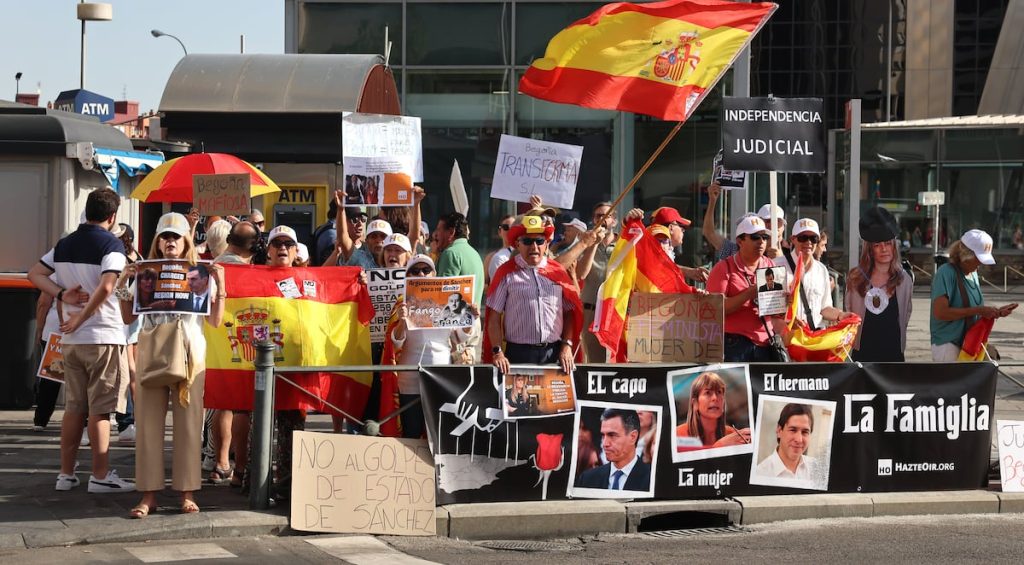Juan Carlos Peinado has been the director of the Instruction Court number 41 in Madrid for seven years. He will turn 70 in September and was authorized by the General Council of the Judiciary in January to continue working until he turns 72. Peinado accessed the judiciary at the age of 40 through a merit-based selection process without having to pass an exam. He is the father of a councilor from the PP political party in Pozuelo de Alarcón, Madrid. A complaint against Begoña Gómez, the wife of the Prime Minister, was filed with Peinado by the far-right organization Manos Limpias on April 9. The complaint was based on newspaper clippings with false or unsupported allegations about influence trafficking related to the Air Europa rescue operation.
After reviewing the documents, Peinado decided to open a case against Gómez within a week. Every step he has taken in the case has been challenged by the defense and supported by the PP, who are using the investigation to demand the resignation of the Prime Minister. Vox, another political party, is also involved in the case as a popular prosecution. The Audiencia Provincial of Madrid found that the initial complaint contained unreliable or incorrect information and that linking Gómez to influence trafficking in the Air Europa rescue was merely speculative. However, they did find that Gómez’s letters of support for a businessman, included in a winning bid for public contracts, deserved investigation for possible influence peddling.
Despite the lack of evidence connecting Gómez to any wrongdoing, the investigation has continued, with over 2,000 pages of documentation and multiple interrogations conducted. Two individuals have been unexpectedly made suspects in the case. The progress of the investigation has not revealed any concrete evidence of influence trafficking or corruption. The judge’s decision to question the Prime Minister in person at his official residence has been met with criticism from legal experts, who warn of potential legal repercussions for Peinado’s actions.
The investigation into Gómez’s alleged influence trafficking has expanded to include her involvement in a university chair and a digital platform project. The alleged favoritism in public contracts and irregularities related to Gómez’s roles in the university have also been scrutinized. Despite efforts to link Gómez to corrupt activities, no concrete evidence or charges have been brought forth by the investigating authorities. The case has garnered attention due to its political implications and the unusual actions taken by the judge in carrying out the investigation.
The allegations of influence trafficking involving Begoña Gómez and the subsequent investigation have yet to yield any proof of wrongdoing. The involvement of various parties, including the courts, the media, and political factions, has added to the complexity and controversy surrounding the case. As the investigation continues, questions remain about the validity and motivations behind the accusations against Gómez and the legal process unfolding in response to them.


